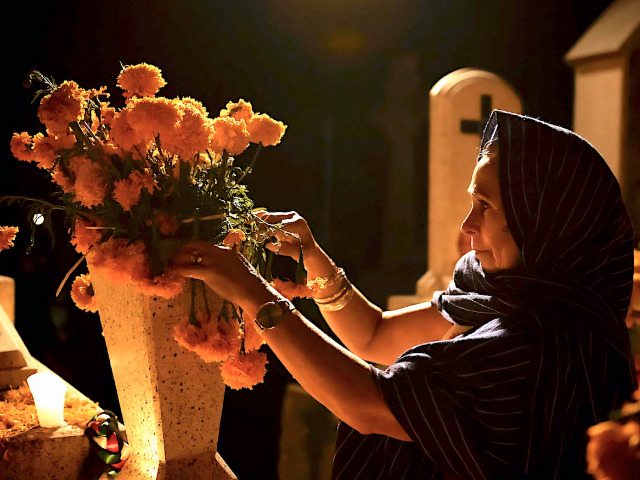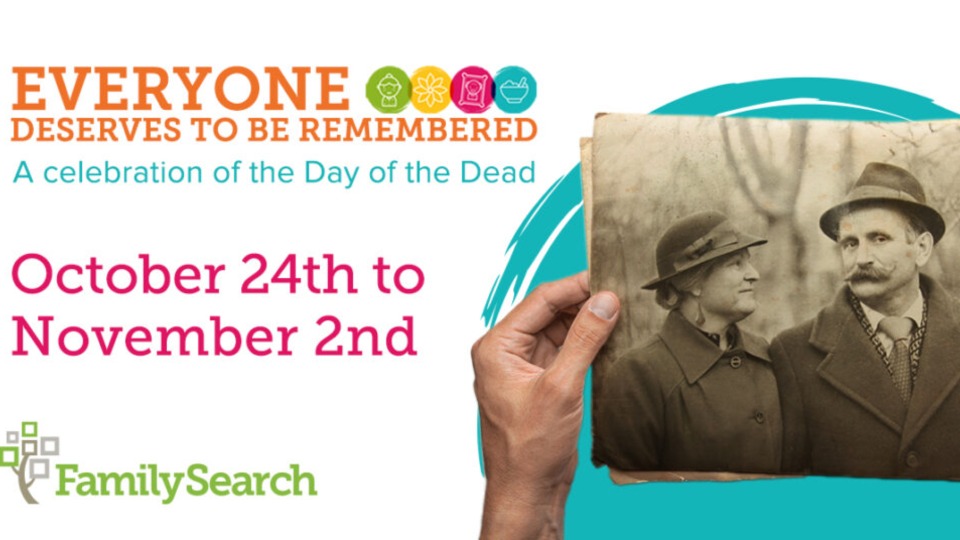
This story appears here courtesy of TheChurchNews.com. It is not for use by other media.
By Sydney Walker, Church News
The message of FamilySearch’s upcoming Day of the Day celebration is both all-inclusive and individual: “Everyone deserves to be remembered.”
To help make Day of the Dead more meaningful for people of all backgrounds, FamilySearch is launching a campaign October 24 through November 2 with various activities to encourage everyone — whether they have Latin American heritage or not — to honor their ancestors.
“We want them to share that everyone deserves to be remembered,” said Lluvia Concha, who works on FamilySearch’s Latin America homelands team. “We want this to be a tool for people to share with their family and friends.”
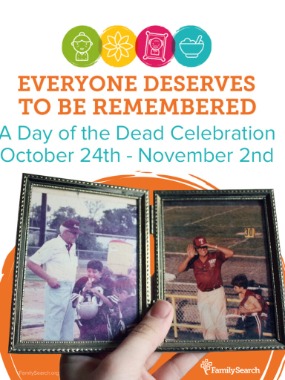
The celebration kicks off on Sunday, October 24, with a live broadcast about Day of the Dead traditions in Latin America. The event begins at 5 p.m. MDT on Facebook in Spanish and Portuguese and YouTube in Spanish and Portuguese. (English viewers can watch on YouTube with automatic captioning.)
Similar to the format of the Church’s Light the World campaign, people are invited to participate in a daily activity starting October 25, leading up to Day of the Dead:
- October 25: My ancestors. Share photos and stories of your ancestors by saving them in the “Memories” section of FamilySearch.
- October 26: Growing my family tree. Find and add your ancestors to your family tree.
- October 27: Tell their story. Tell a story about one of your ancestors and preserve it forever.
- October 28: Family heirlooms. Share the history and your memories of one of your precious family heirlooms.
- October 29: My ancestor drawing. Draw a picture of an ancestor or write him or her a special letter.
- October 30: My family’s recipe. Prepare one of your family’s traditional recipes and share its story.
- October 31: A tribute to my ancestors. Create a special memorial to honor your ancestors for Day of the Dead.
- Nov. 1–2: Celebrate at home. Remember your ancestors by trying some of these simple activities in your own home.
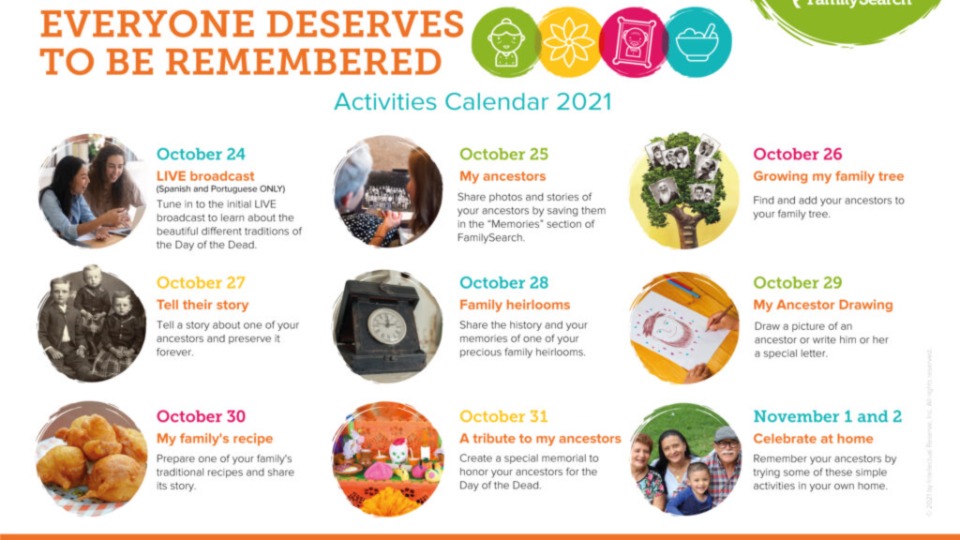
Participants are also invited to post photos, stories and memories of their deceased loved ones on social media using #RememberMe (English), #MerecenSerRecordados (Spanish) or #MerecemSerRecordados (Portuguese).
A photo carousel on FamilySearch’s Day of the Dead webpage highlights traditions from several Latin American countries. For example, people in Mexico make “ofrendas” or altars to remember their deceased ancestors; in Guatemala giant kites are flown to symbolize the souls of the dead ascending to heaven; and people in El Salvador prepare “pan de muerto,” a sweet bread, to remember the sweetness of their ancestors’ memories.
One of Concha’s favorite activities during Day of the Dead is sharing her family heirlooms. She has a lamp on her bookshelf that belonged to her mother. “Having the lamp on is me remembering my mom working on something, writing in her journal or even working on her genealogy. … It’s having a piece of her with me,” she said.
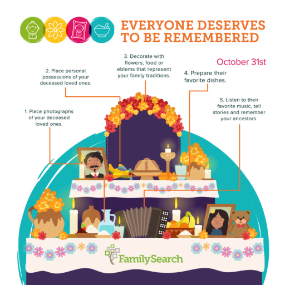
Day-of-the-dead-3.jpeg
As part of the FamilySearch activities for the Day of the Dead 2021, participants are invited to create a tribute to their ancestors on October 31. Photo courtesy of FamilySearch, courtesy of Church News.All rights reserved.“Even if they don’t have Latin American heritage,” Concha said of those who participate in the Day of the Dead activities, “I think it’s very important for everybody to remember their ancestors and just celebrate the life of their ancestors.”
Coinciding with Day of the Dead, ExpoGenealogía — an in-person and virtual family history event for Spanish speakers — will be held at the Pepsi Center WTC in Mexico City, Mexico, October 29–30. Register for free at expogenealogia.mx.
Learn more about FamilySearch’s Day of the Dead celebration in English, Spanish and Portuguese.
Copyright 2021 Deseret News Publishing Company
